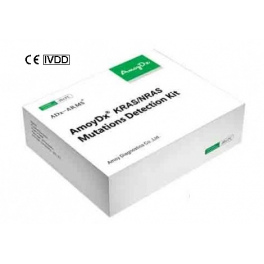 View full size
View full size
- Nucleic Acid Analysis
- Protein Analysis
- Biochemical Reagents
-
Enzymes
- Thermophilic DNA Polymerases
- Mesophilic DNA Polymerases
- Restriction Endonucleases
- Reverse Transcriptase and RNA Polymerases
- DNA/RNA Ligases
- RNases
- Proteases
- Nucleases
- Kinases
- Phosphatases and Sulfurylases
- DNA Repair Proteins
- Single-Stranded DNA Binding Proteins
- Chaperon Proteins and Disulfide Bond Isomerase
- Others
- Gene editing
- Molecular cloning
- Clinical diagnostics
- Human Identification STR kits
- Laboratory instruments
- Software
- A&A Biotechnology
- AdvancedSeq
- BioDynami
- Plant Cell Technology
News
-
RANK 2026
Visit us at the jubilee 20th edition of the RANK 2026 professional conference, which will take place on March 18–19 in Pardubice at the ABC Club. The conference is organized by the Czech Society of Cl...
Read more -
XXXV. Izakovičov memoriál 2025
We are pleased to announce our participation in the prestigious XXXV. Izakovič Memorial 2025, which will take place on October 8–10, 2025 at the Grandhotel Praha, Tatranská Lomnica. The Izakovič Memo...
Read more -
1st Czechoslovak Congress of Medical Genetics 2025
In the spring, we will participate in the 1st Czechoslovak Congress of Medical Genetics, which will take place from April 2–4, 2025, at the Cultural and Congress Center Elektra in the spa town of Luha...
Read more
 View full size
View full size
Detection of 19 KRAS mutations (exons 2, 3 and 4) and 13 NRAS mutations (exons 2, 3 and 4)
RAS protein is a GTPase and one of the key molecules in the downstream signaling pathway of epidermal growth factor receptor (EGFR). These pathways control cell proliferation, differentiation and apoptosis. Frequency of KRAS and NRAS mutations in colorectal cancer are 36~40% and 1~6% respectively. Most frequent mutations are in exons 2, 3 and 4. RAS mutation is predictive of a very poor response to cetuximab (Erbitux®) and panitumumab (Vectibix®) therapy in colorectal cancer (CRC).[1] The most reliable way to predict whether a colorectal cancer patient will respond to one of the EGFR-inhibiting drugs is to test for activating mutations in the RAS gene.
Cart
Payment gate



